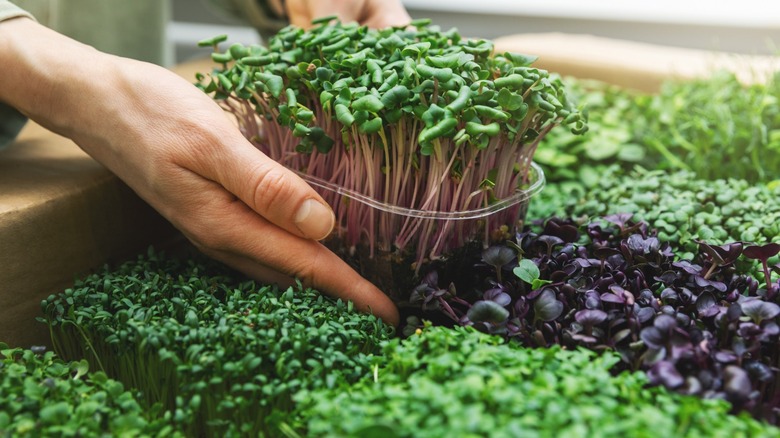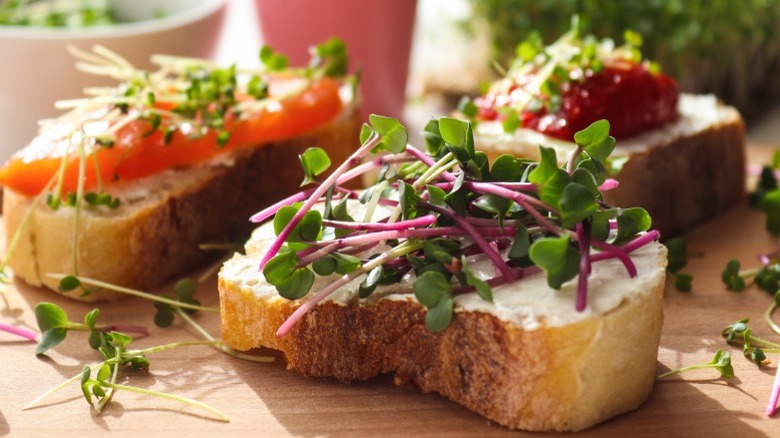How A Diet Full Of Microgreens Can Help Your Gut Health
People often say to "go with your gut," but what exactly is a healthy gut and why is gut health so important to maintain?
Also known as the gastrointestinal (GI) tract, your gut is responsible for the digestion and absorption of food. Though people often associate the stomach with the gut, the gut also includes the mouth, esophagus, small intestine, pancreas, and large intestine, according to the experts at Orlando Health. The digestion process begins in the mouth where food first breaks down and mixes with saliva. The esophagus then transports the food to the stomach, where it mixes with acid and enzymes and breaks down further.
Ultimately, the nutrients in the food enter your system via the small intestine. This is also where bile comes into play to help with the digestion of fats, per the National Institute of Diabetes and Digestive and Kidney Diseases. Finally, your large intestine absorbs water and removes indigestible food. Additionally, the gut is key in maintaining overall health because it contains a large population of microorganisms, or microbiome, which is a vital part of the digestion process and supports the immune system, per Orlando Health.
If you don't maintain a healthy gut, you run the risk of experiencing digestive issues. For example, if the bacteria in your gut are out of balance, the experts at Healthline state that you can develop what is known as "dysbiosis," which can lead to a range of issues, some more severe than others, such as bad breath, stomach discomfort, constipation, chest pain, and even anxiety or depression in some cases.
These microgreens will help promote a healthy gut
Given how vital your gut health is, it could be a wise move to incorporate a variety of microgreens into your diet.
Once seen primarily as a fashionable garnish, microgreens are now being embraced by more Americans for their nutritional benefits. Estimated to be a $1.3 billion global industry in 2019, the global microgreens market is projected to grow to $2.2 billion by 2028, according to Allied Market Research.
But what exactly are microgreens? The experts at Nourish by WebMD explain that microgreens are small plants that come from a variety of plant seeds, such as beets, spinach, broccoli, Swiss chard, and squash. Because microgreens are so compact, they contain a concentrated amount of nutrients compared to their mature plant counterparts. And you can easily include these cute baby greens to your diet as a garnish for pizza and soups by blending them into smoothies or adding them to recipes or salads.
Besides helping to support your gut microbiome health, microgreens have you covered if you're looking to up your vitamins A, C, E, and K or boost your calcium, iron, or other minerals. Microgreens also contain antioxidants, which can help prevent the risk of developing various diseases, per Banner Health.
Another benefit of microgreens, says mindbodygreen, is that you can grow small amounts at home. Simply select the type of microgreens seeds you wish to cultivate and obtain some seed-starting soil mix and a shallow tray. Spray the soil with water, cover it with plastic wrap to contain the moisture and heat, place it in sunlight, and watch your micro garden grow!


